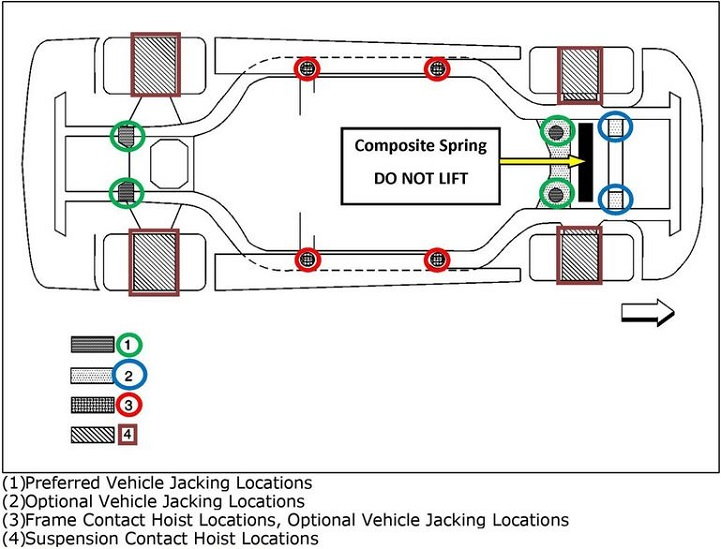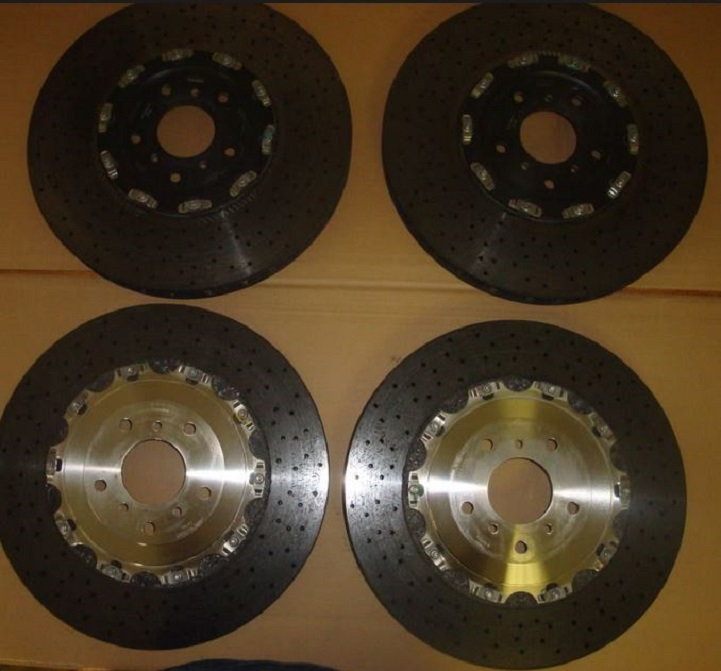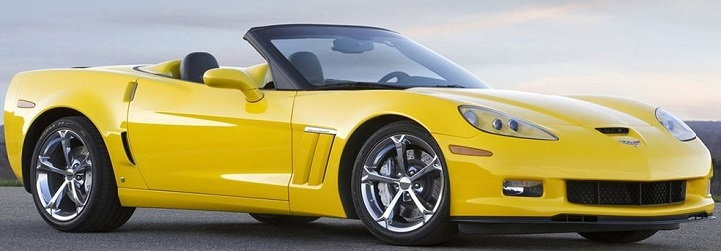C6 C7 Corvette: Why are My Brakes Squeaking?
Squeaky brakes may be a sign of something bad, or it may just be a minor issue that is easily remedied with a few simple steps. Continue reading to find out why your brakes might be squeaking.
This article applies to the Corvette C6 (2005-2013), and C7 Corvette (2014-current).
With a high performance car like a Corvette, there aren't many things that are more important than your brakes. Your brakes are your tools that can save your life and, as such, you should really know them well. This means from the time you drive your car off the lot, you should pay close attention to how it drives, stops and all the little noises you hear. Any changes should be investigated for your safety and for the sake of your car. A little prevention goes a long way with your wallet. With your brakes, you may hear them when you stop. If you hear them squeaking and feel them grinding, change those pads and check the rotors and calipers for wear or damage immediately. Squeaking or squealing without the grinding isn't necessarily a bad thing. Some brakes just squeal a little. When new pads are installed, they should be bedded properly. If they aren't brand new pads, a burnishing just might do the trick to stop that annoying noise. If you have checked your brakes for uneven wear or any kind of damage and none can be found, the squealing is probably more annoying than harmful. There are a few reasons such as moisture, dust or material components of the pad that would indicate why your brakes might squeal and a few remedies that you can try to bring back your sanity.

Materials Needed
- Hydraulic jack
- Jack stands (optional)
- Anti-squeal spray
- New pads, rotors, calipers (if needed)
- High quality micrometer
Step 1 – Jack up your car and remove the wheels
You will need to remove the wheels to properly inspect your brakes.
- Loosen the lug nuts.
- Raise your Vette with the hydraulic jack at the proper location.
- Position your jack stands at the points indicated in Figure 1.
- Remove the wheels and check the rims for signs of brake dust.
(Related Article: How to Jack Up Your Vette - CorvetteForum.com)

Step 2 – Visually inspect your brake pads
Your brake pads may be worn, damaged or just dirty.
If your rims were coated in brake dust, it is likely this dust is causing your squeaking noise. With certain pads, this is normal. If there are no signs of brake dust, you should take a closer look at your pads.
- Check the pads. You can usually tell if they are worn by the thickness of the pad without removing them.
- If they do not appear worn while on the car, you should consider taking them off the car for a closer inspection.
- If they appear to be fine or if brake dust is the culprit, an anti-squeal spray may be all that is needed. Be sure to coat the back of the pad holder, between the metal pad holder and the pad itself.

Pro Tip
If the brake pads did show sign of wear or were damaged in any way, you should inspect the rotors as well.R
Related Articles
- How to Replace Rear Brake Pads - CorvetteForum.com
- How to Replace Front Brake Pads - CorvetteForum.com
Step 3 – Inspect your rotors for uneven wear, thinning or warping
The rotors may contribute to the squealing noise; however, you will likely feel thumping, grinding or other such issues. Use a good quality micrometer to determine if they are within the recommended thickness. If they are not, you should replace them. It is possible to resurface rotors, but the likely issue that caused them to wear unevenly in the first place is still there and they continue to wear unevenly. The better option is just to replace them.

Featured Video: How to Check and Measure Your Brake Rotors/Disks
Step 4 – Take it for a test drive
If the rotors were fine, and you used an anti-squeal spray, re-install the pads, wheels and see if that solved the problem.
The anti-squeal spray will help to resolve the squeal; however, it may not completely eliminate it and it may not be a permanent fix. If brake dust was on the wheels, the spray will not likely permanently resolve that issue.

Pro Tip
If they still squeal during your test drive, consider replacing the pads.
Step 5 – Replace your brake pads
Brake pad squeal may be normal for the type of pads on your car. If you can't live with it, you'll need to replace them.
Some brakes perform better than others. Some are made specifically for the track and are not optimal for the stop, go and the low speeds of street driving. Some are made of material that will cause dust, which will contribute to the squealing. Determine what kind of driving you normally do and select the appropriate brake pads.
- GM released a bulletin in 2005 indicating brake noise and offered OEM replacements that eliminated the squeal almost entirely.
- Hawk performance ceramic brake pads are a popular choice among Corvette enthusiasts. These nearly eliminate dusting and noise. Plus, do not require turning the rotors to install.
- Carbotech is another brand of ceramic brake pads that come highly recommended. They are much less noisy than the Hawks.

Pro Tip
Some brand of ceramic brake pads may still squeal after heating up. The main benefit of ceramics is that they are generally quieter and less dusty; however, they do not have the same stopping power as a traditional more aggressive brake pad. If you are looking for better stopping power, you will need such a pad, but they will be noisier and create a lot of dusting. Burnishing your brakes will bake the glue that is holding the pad material in place and this will help with squeal as well. Also, follow the manufacturer's recommendation whether or not the pads need bedded after installation.
Related Discussions and Site
- Brake Squeal - CorvetteForum.com
- Brakes Squeaking - CorvetteForum.com
- Anyone Have Squeaky Brakes - CorvetteForum.com
- Why Do My Brakes Squeak So Bad - CorvetteForum.com
- Brake System Service and Components - Import-Car.com
- Changing Brake Pads on Stock Calipers and Removing Rotors - CorvetteForum.com






